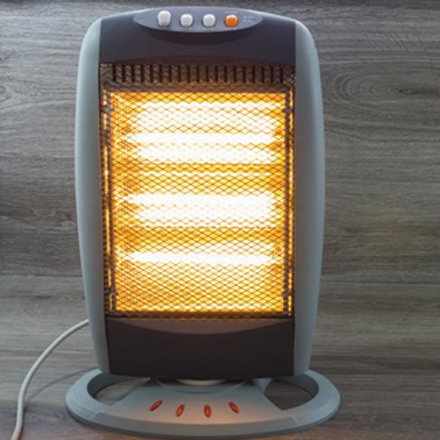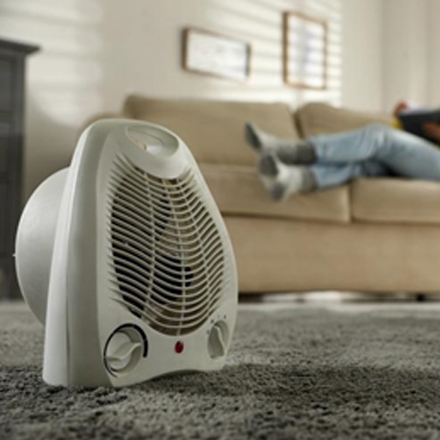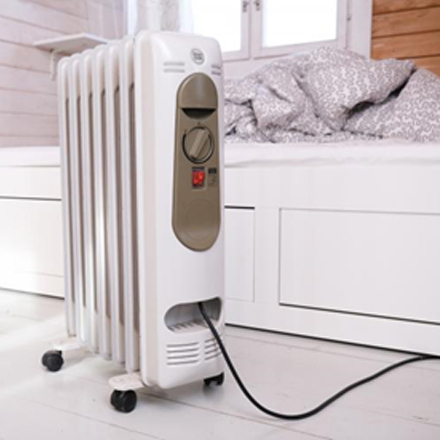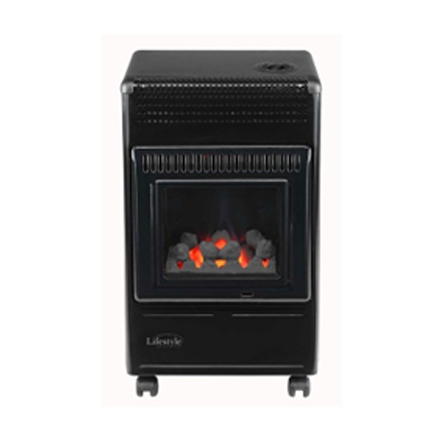
Portable heater safety
Portable heaters and other electrical devices are fire hazards when not handled in a safe way. Here are our top tips when using different types of heaters.
Top tips when using heaters/electrical devices in your home:
- Always sit at least one metre away from any heaters
- Don’t cover the heater vents
- Sit heaters where they are unlikely to fall over
- Don’t forget to turn off electrical equipment when not in use
Portable electric heaters are high-wattage appliances that have the potential to ignite nearby combustible materials like curtains, beds, sofas, paper, clothing, and flammable liquids.
- Keep heaters at least one meter away from flammables - never put a heater near curtains, furniture, or clothes
- Don’t use heaters to dry clothes - this poses a significant risk
- Don’t overload sockets
Are you using the right fuse?
Always check that you’re using the right fuse – a 3A fuse is for table lamps, televisions, computers, blenders, fridges, and freezers. A 13A fuse is for washing machines, dishwashers, microwaves, kettles, toasters, and irons. Using the wrong fuse increases the risk of a fire and could cause a fault to develop with the appliance or for it to overheat.
Remember…
- If you use an adaptor, use a fused ‘in line’ type, but don’t overload it by adding extra plug-in adaptors. Don’t use high-current appliances such as electric heaters. Make sure you know the limits
- Cable drum extension leads must be completely unwound to avoid overheating
- Only use CE marked or UKCA electrical marked products. The heater should have a thermal cut-out device to avoid them overheating if they fall over or malfunction.
It is good practice to register electrical appliances/equipment with manufacturers so you can be contacted in case of a product recall.
Types of electrical heaters
It’s important you know the different types of heaters in your home and how to take care of them for your health and safety.
Halogen heater

These heaters have intense directional power. It's essential they are not placed too close to people or any combustible items such as furniture or curtains.
Fan heater

These warm the air by heating air using an element and blowing the hot air out of the outlet vent. They can overheat if the flow of air is restricted or they are placed too close to people or objects.
Oil-filled electric radiator

These are the safest electrical portable heaters. They do not have an exposed element and warm up slowly to radiate heat into the air. It is still important to keep them away from people and furniture to make sure air can circulate around them. The surface of the radiator will get hot and it’s important to make sure people don’t touch this.
LGP gas heater

The use of LPG gas heaters can present a higher fire risk and introduce the possibility of more risks such as LPG gas leakage and carbon monoxide poisoning. For these reasons, we do not recommend you use them and using them may be prohibited by the terms of your lease/tenancy agreement.